Storyvials is meant for readers who seek quiet contemplation, and a pinch of whimsy.
Storyvials
Where Small Stories Hold Big Truths
Storyvials is the grown-up's sanctuary of symbolic tales—each tale a small vessel of comfort, memory, and meaning. Rooted in the spirit of humble village lore and shaped by modern resonance, these stories offer not just healing, but a quiet restoration of identity. 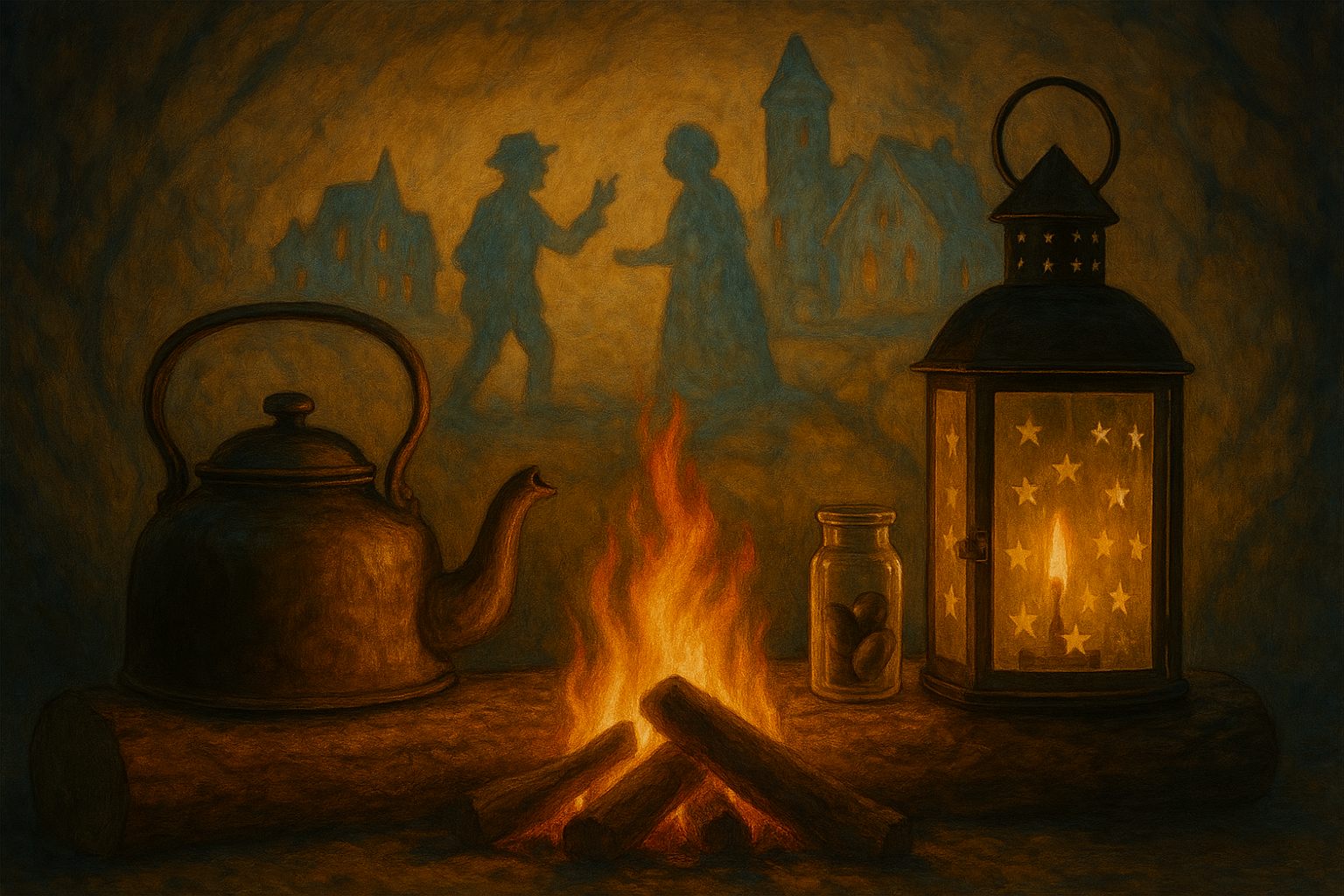
Tales like these restore identity by returning us to presence—the quiet root of observation. In this stillness, memory stirs. Symbols speak. And we begin to remember who we were before the noise.
Emotional Symbols and Timeless Insights
Gestures and objects have always spoken more truthfully than words. A cellar, a spoon, a wolf suit, a thimble. These elements return not as metaphors to be solved, but as emotional cues—quietly charged, intuitive, and observable. They drift and perch like dream-thoughts, recurring across stories with a kind of gentle insistence.
A spoon may offer comfort in one tale and complicate mercy in another. A wolf suit may represent danger, disguise, or even the desperation of loneliness. Their meanings shift with the emotional weather, never fixed, never forced.
These tales are not built on an established symbolic system. They don’t ask to be decoded. Instead, they are infused with interpretive potential—because in life, it isn’t always the obvious that carries the strongest meaning. Not the lawn itself, but the shade of green. Not the speech, but the pause before it. Not the object, but the way it’s placed.
The symbols here behave like feelings: ambiguous, layered, and emotionally true. They invite a kind of listening that is gentle, unhurried, and safe. A language older than explanation.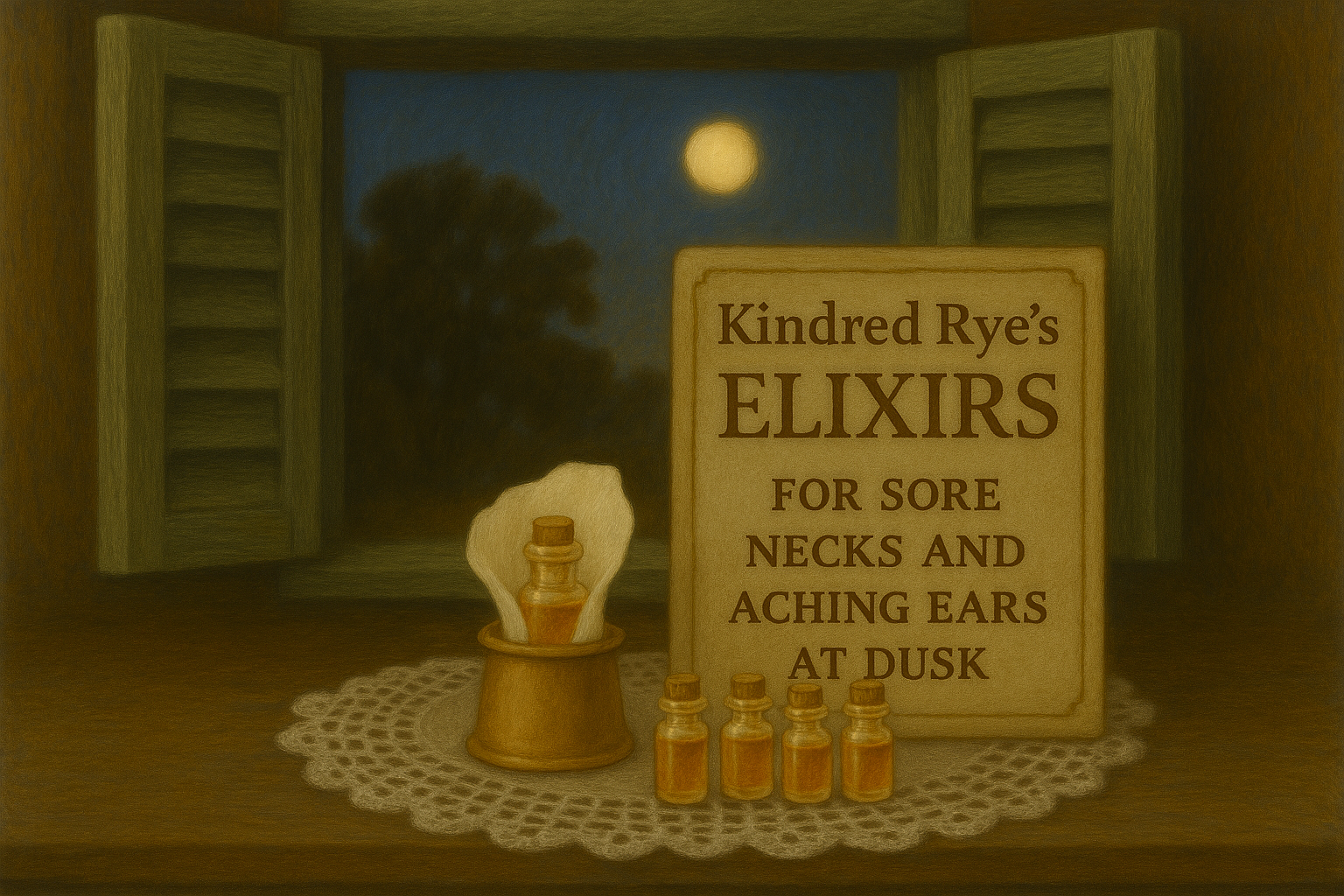
Read I
A nosey magician, having noticed a peculiar old man, stops by his hut one day to start a bizarre conversation. After the conversation ends, the old man is compelled to go in search of his true identity. But had he really ever lost it to begin with? This tale follows the old man through a quietly strange journey revealing true essence. Based on an 1883 tale by Frank Stockton.
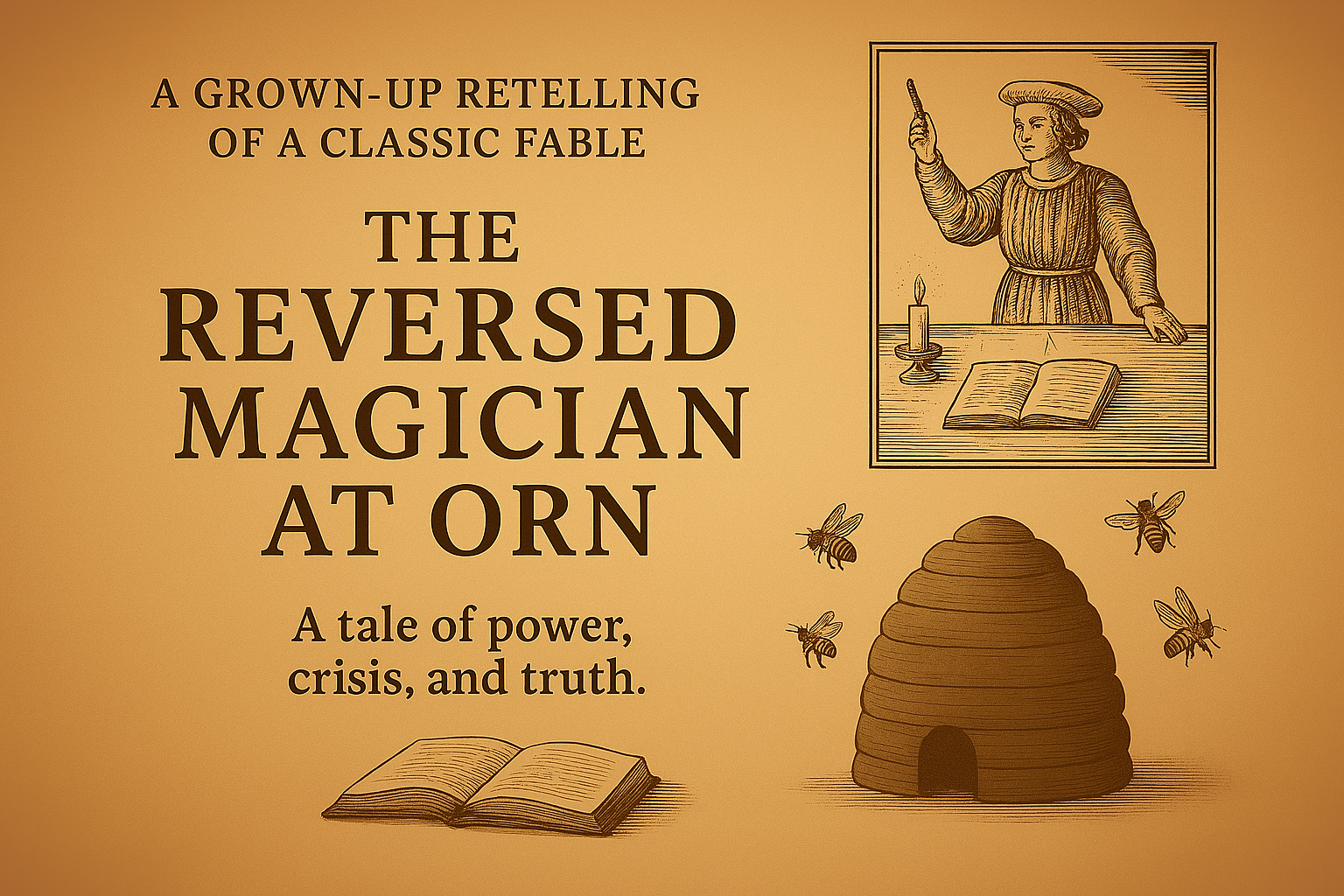
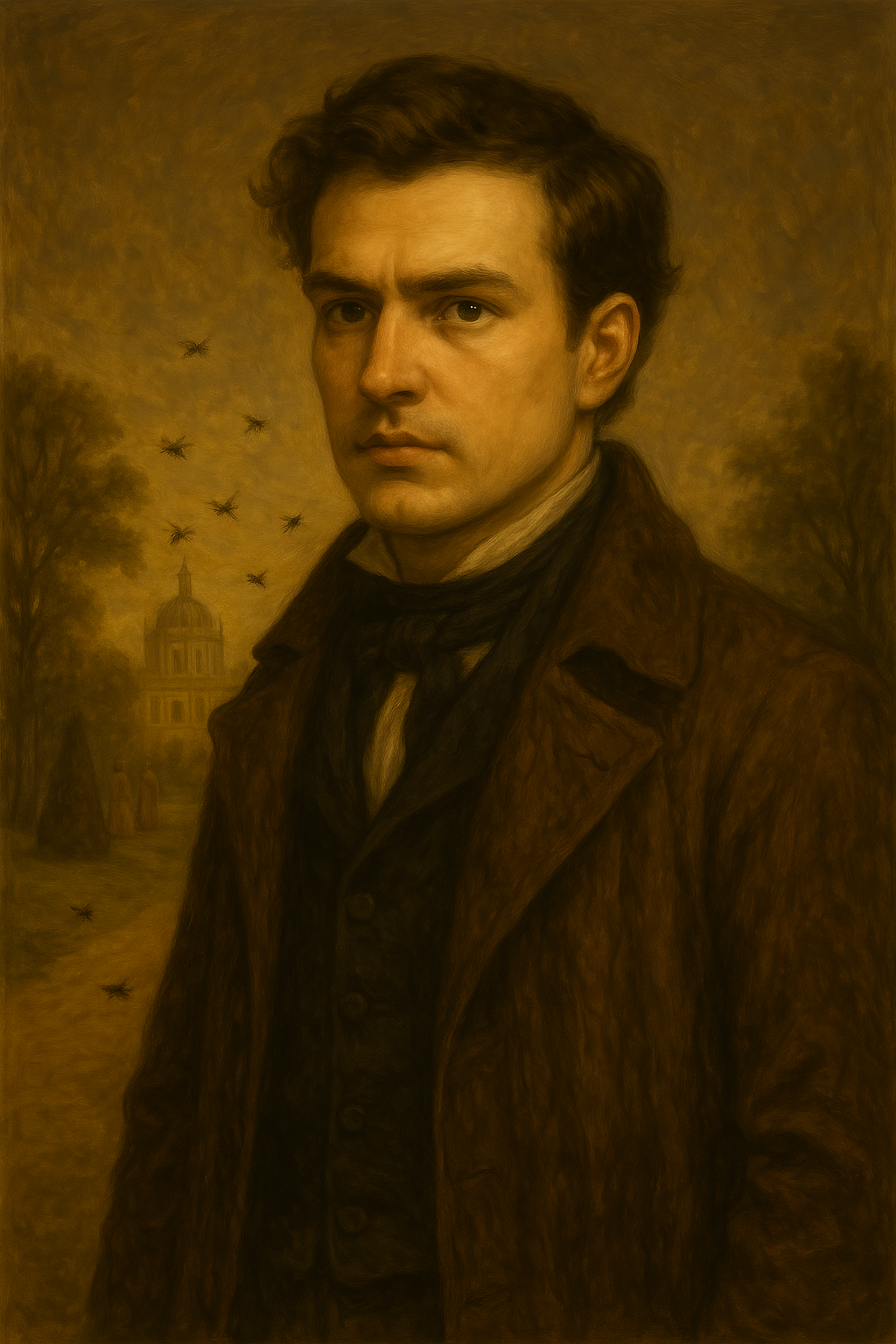
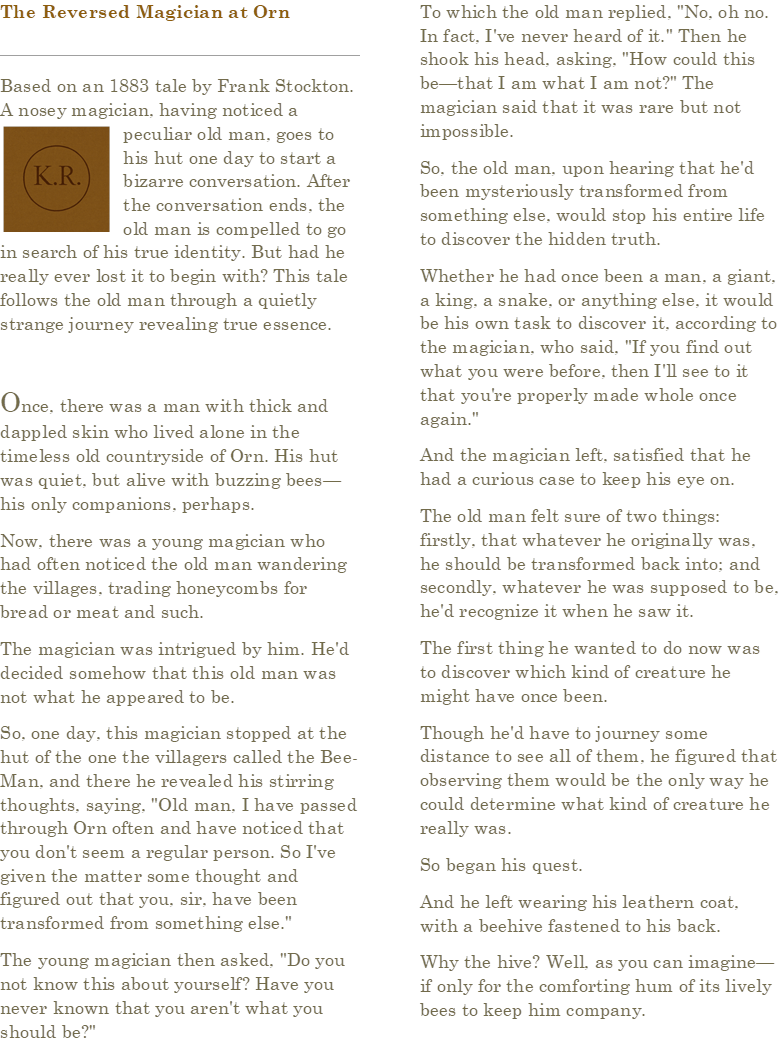
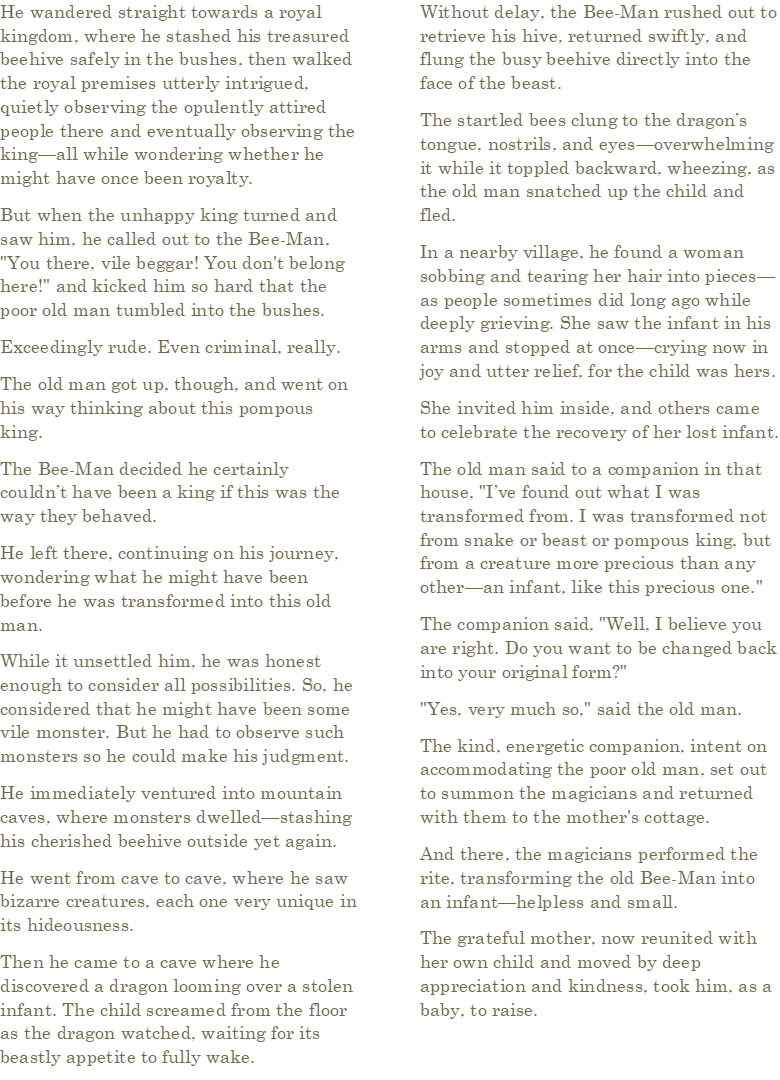
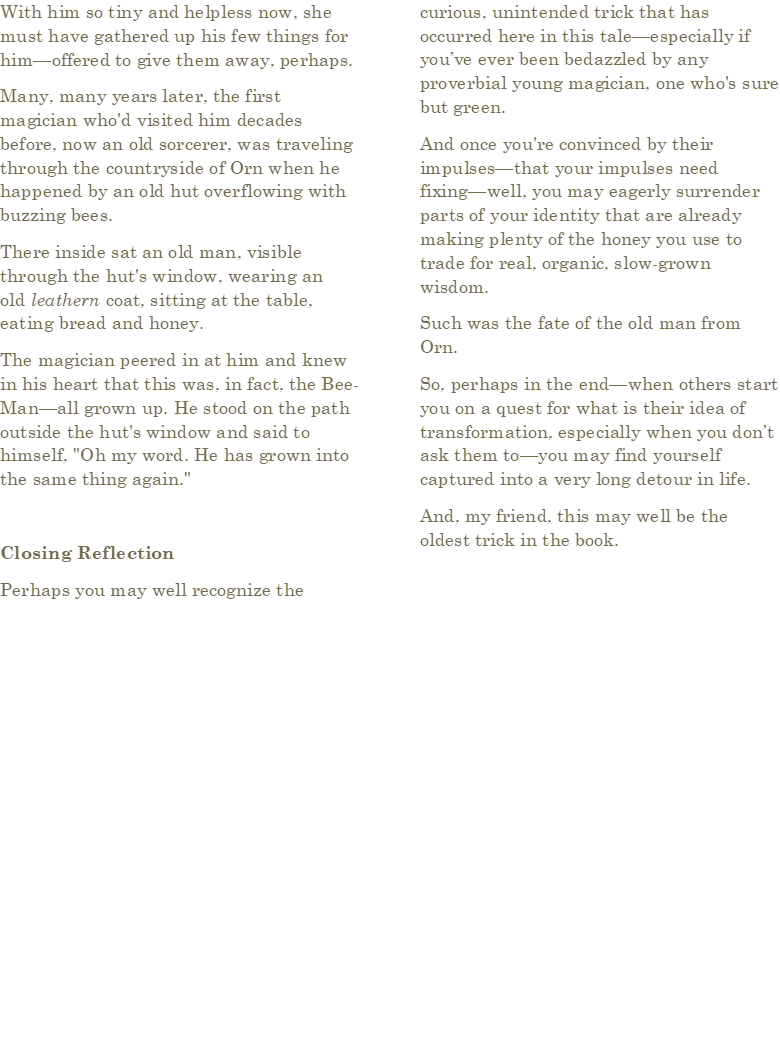


Read II
The Tale of Reclaimed Identity An 1885 Village Tale Reimagined by K. Rye -Originally Penned by American Author Frank Stockton An old herder never moves from his rock while he herds the cattle home by playing his pan flute. One day a pair of villagers slips bad news to him. Devastated he sets out to right the wrong; the unfair generosity bestowed upon him. He meets a magical spirit along the way, who takes favor in him and helps him to get his moxie back. This tale has a bit of whimsy.


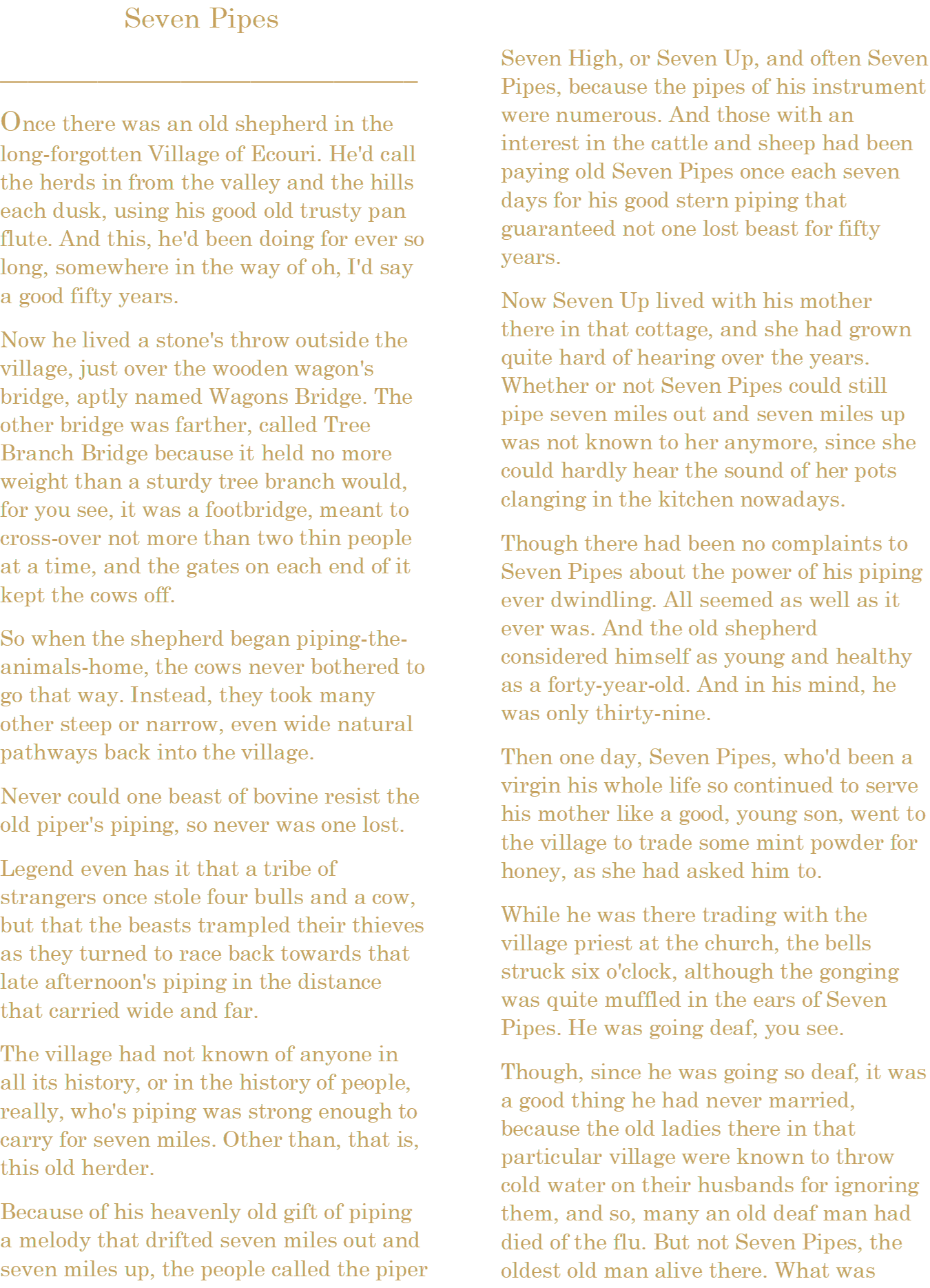

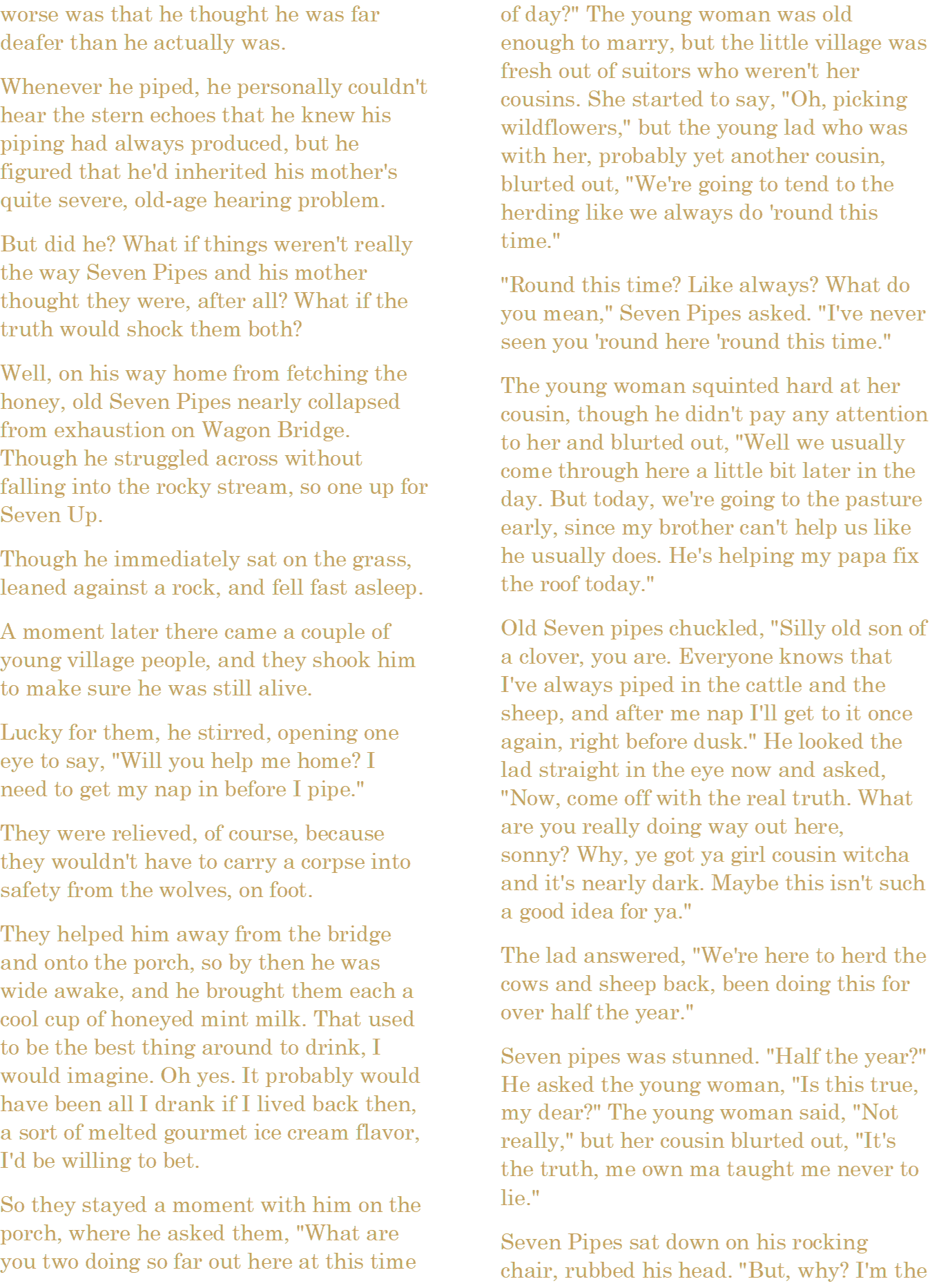

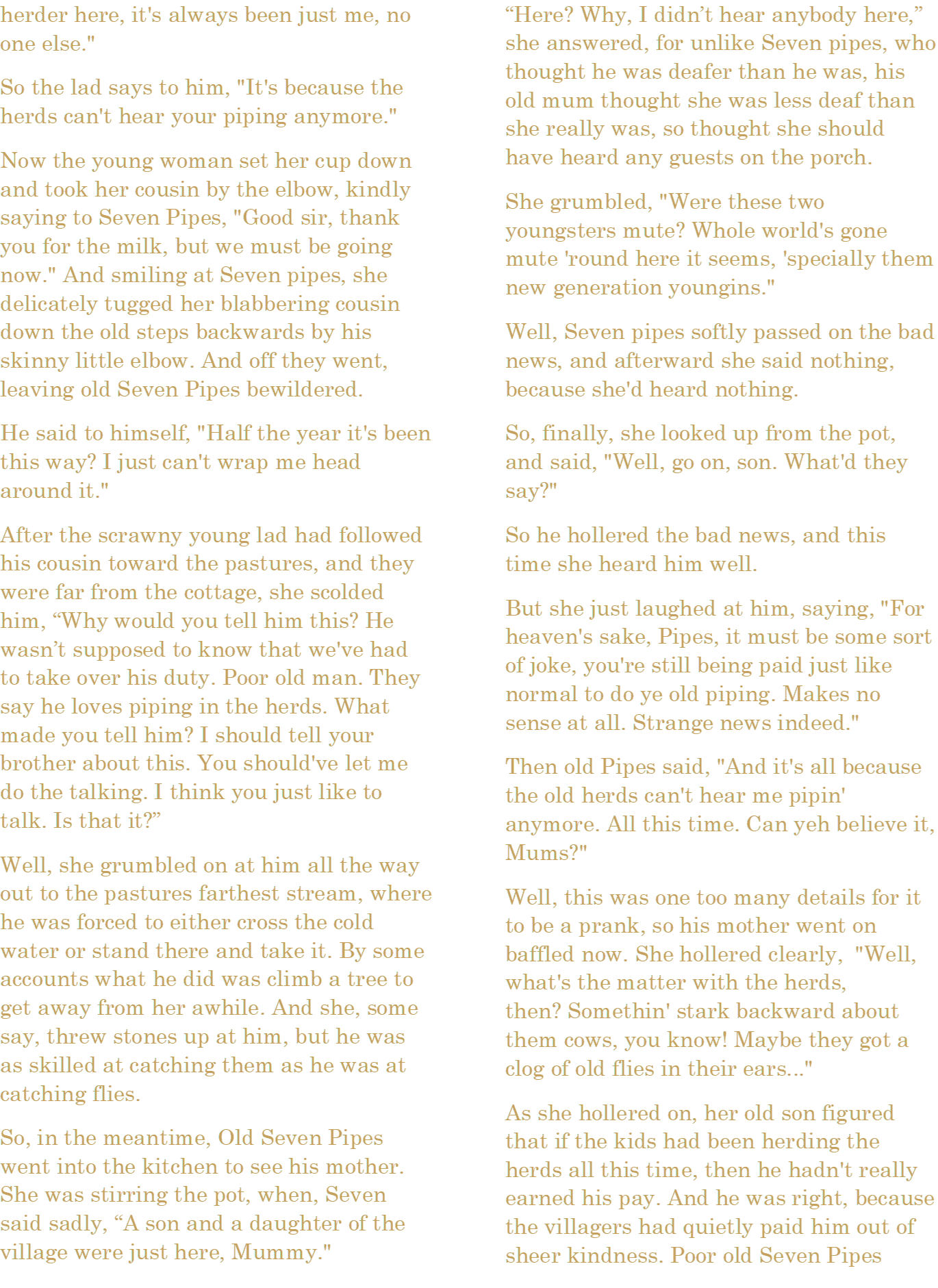

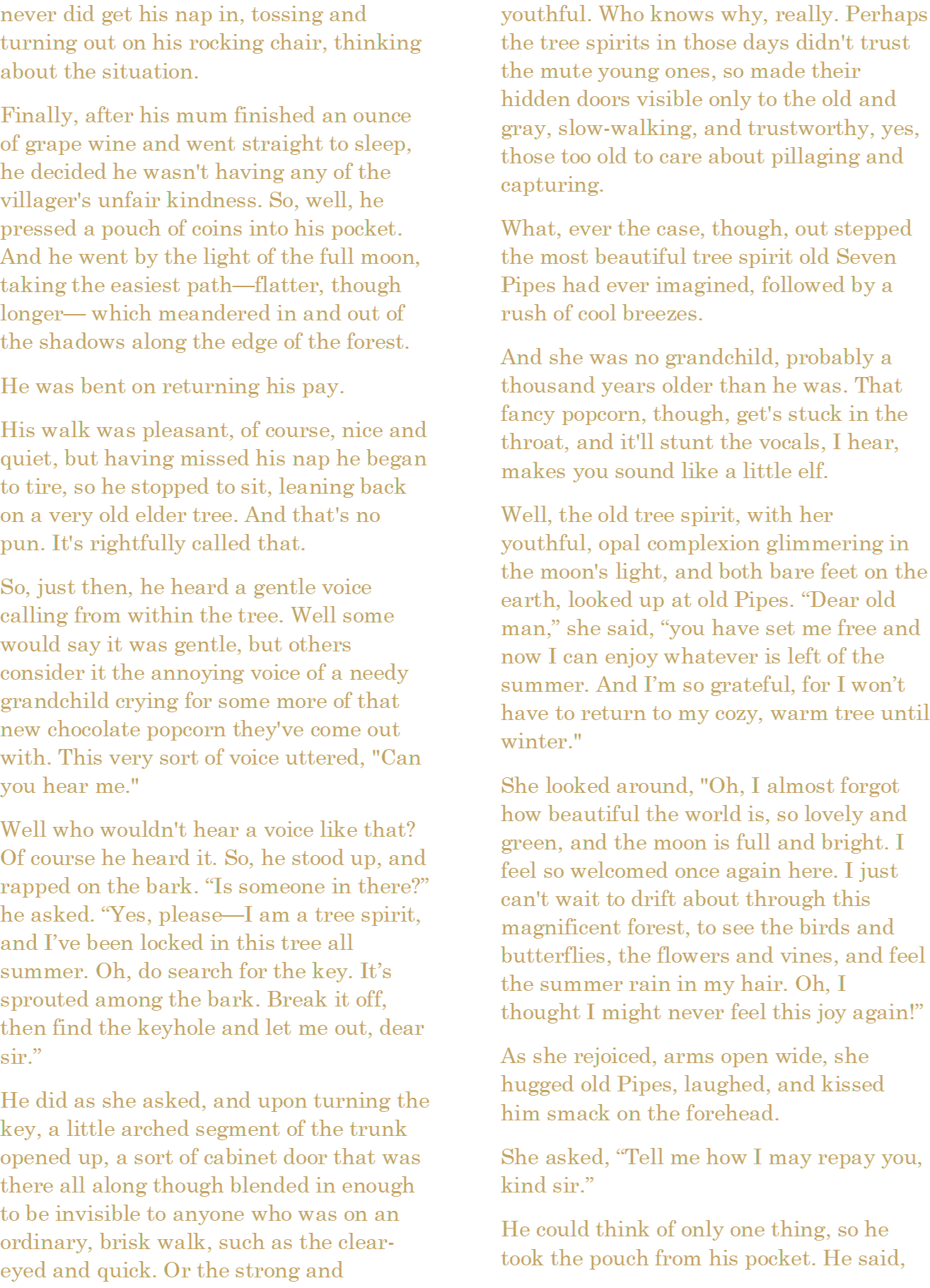

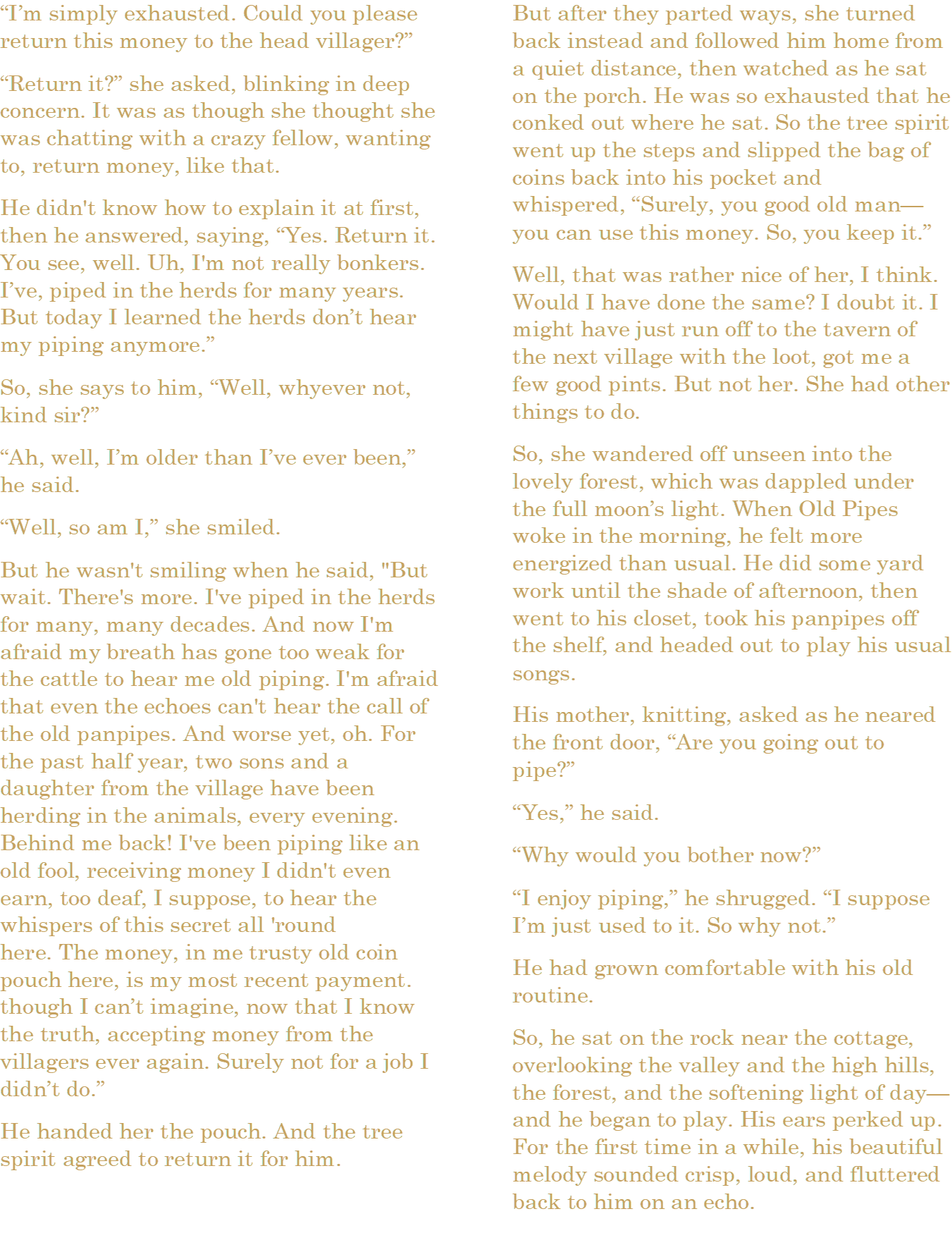

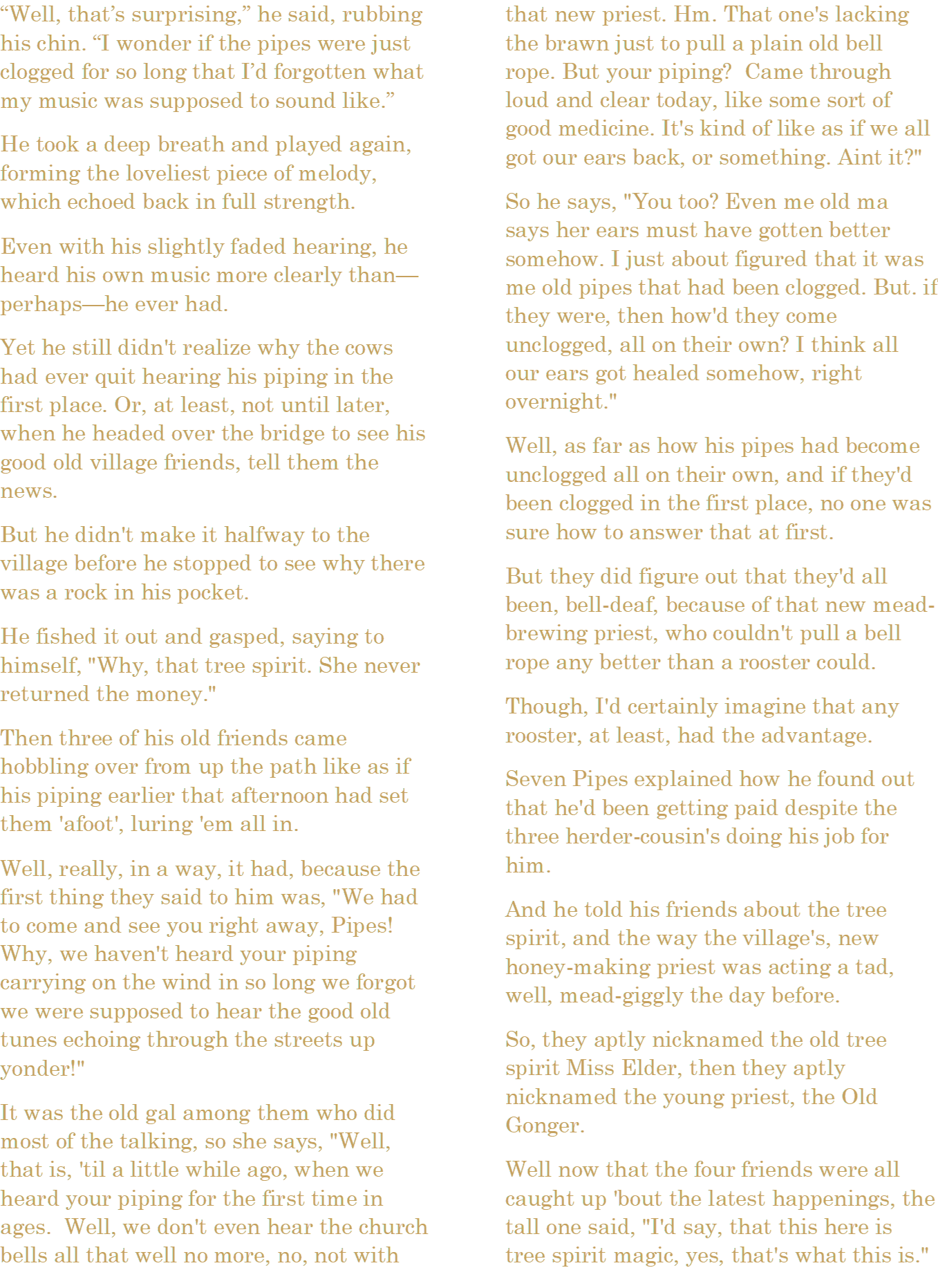

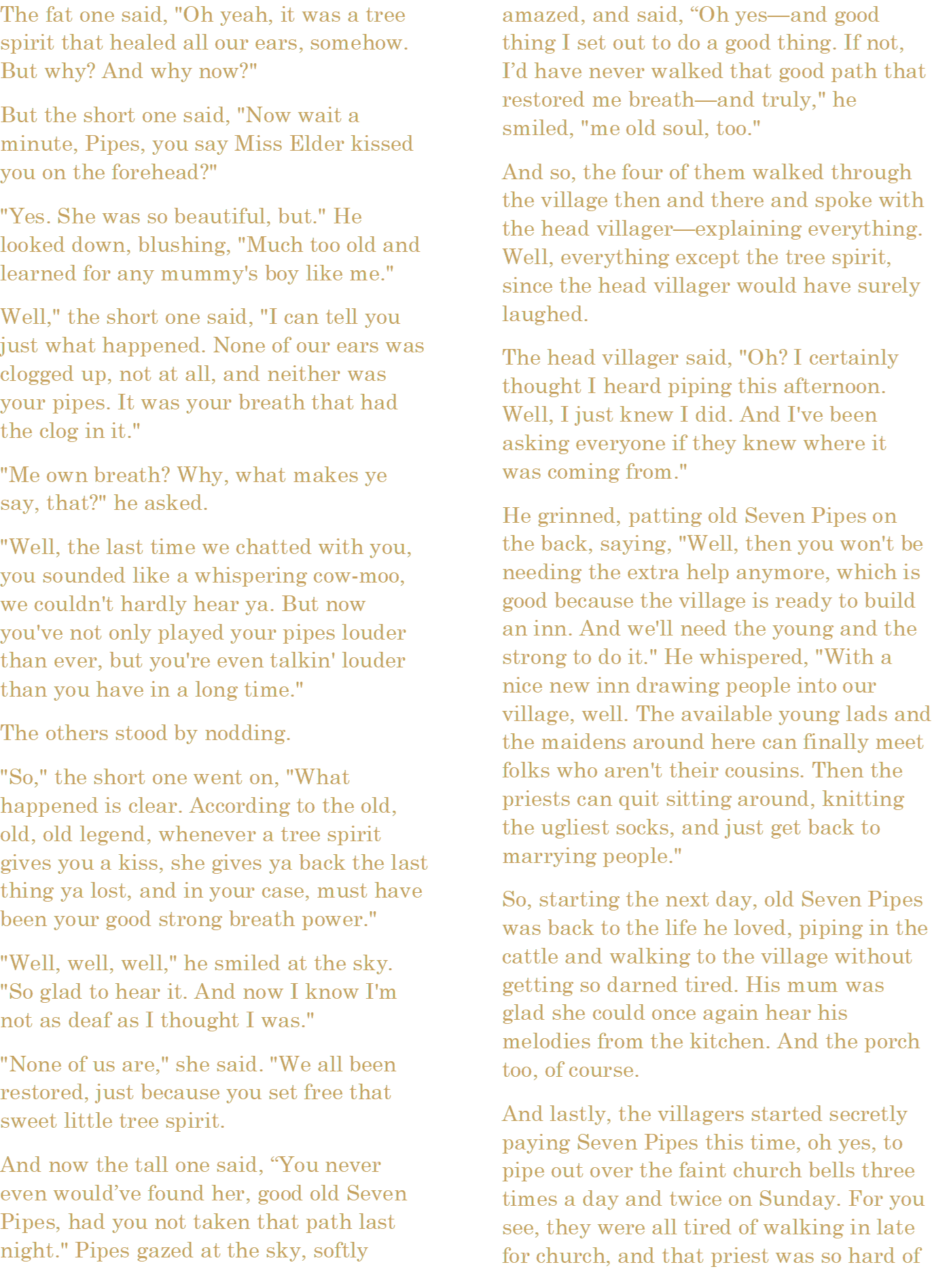

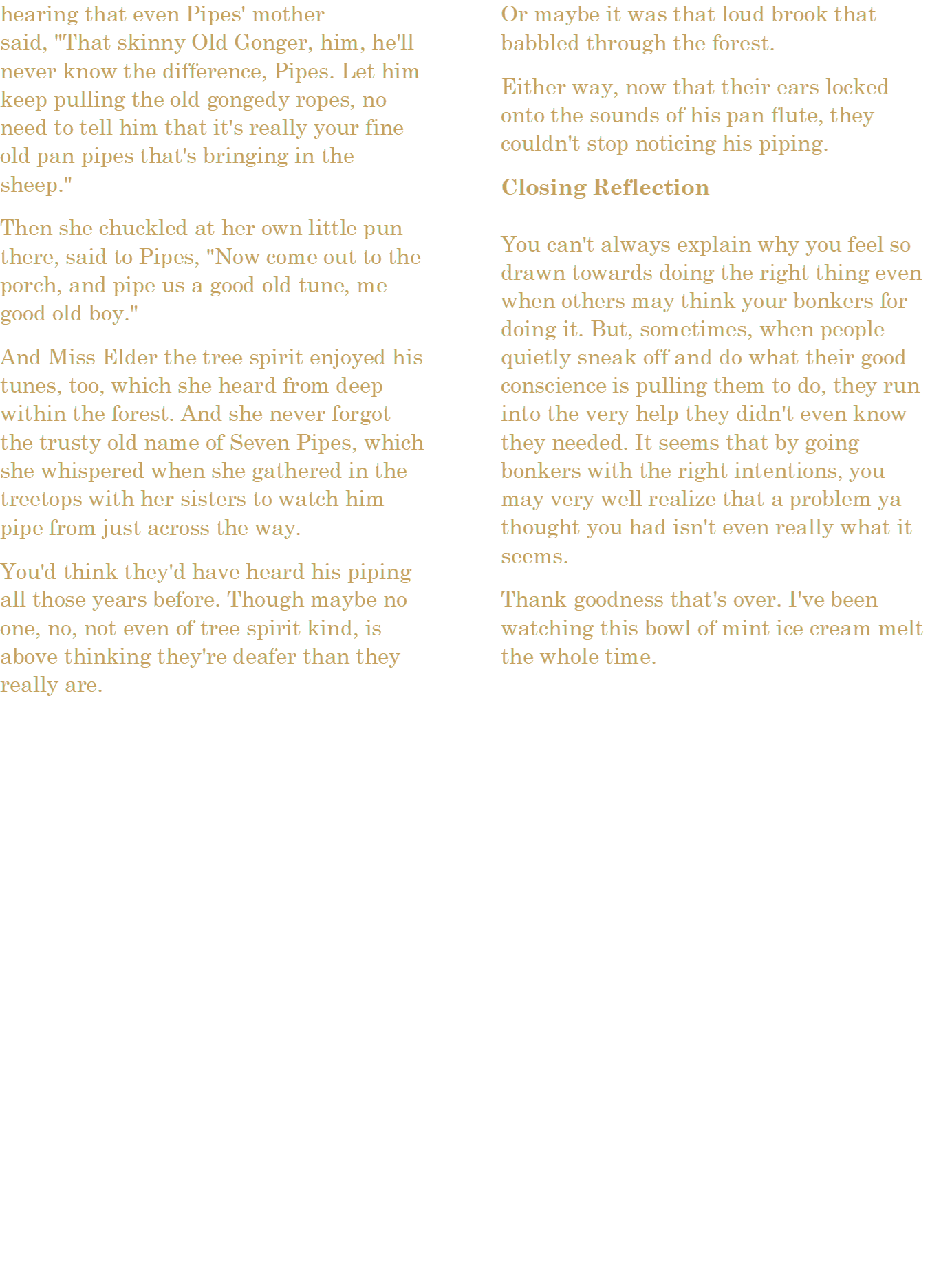



Read III
Twin villagers face the decline of their village’s morale after a string of misfortunes and the banning of Mardi Gras. What they plot—and carry out—turns into a disaster. With dry wit, a touch of absurd humor, and a bit of suspense, this tale offers a laugh followed by a heartfelt thought or two. Loosely inspired by The Boy Who Cried Wolf.


Boredom, Bad Wine, and a Cellar Wolf
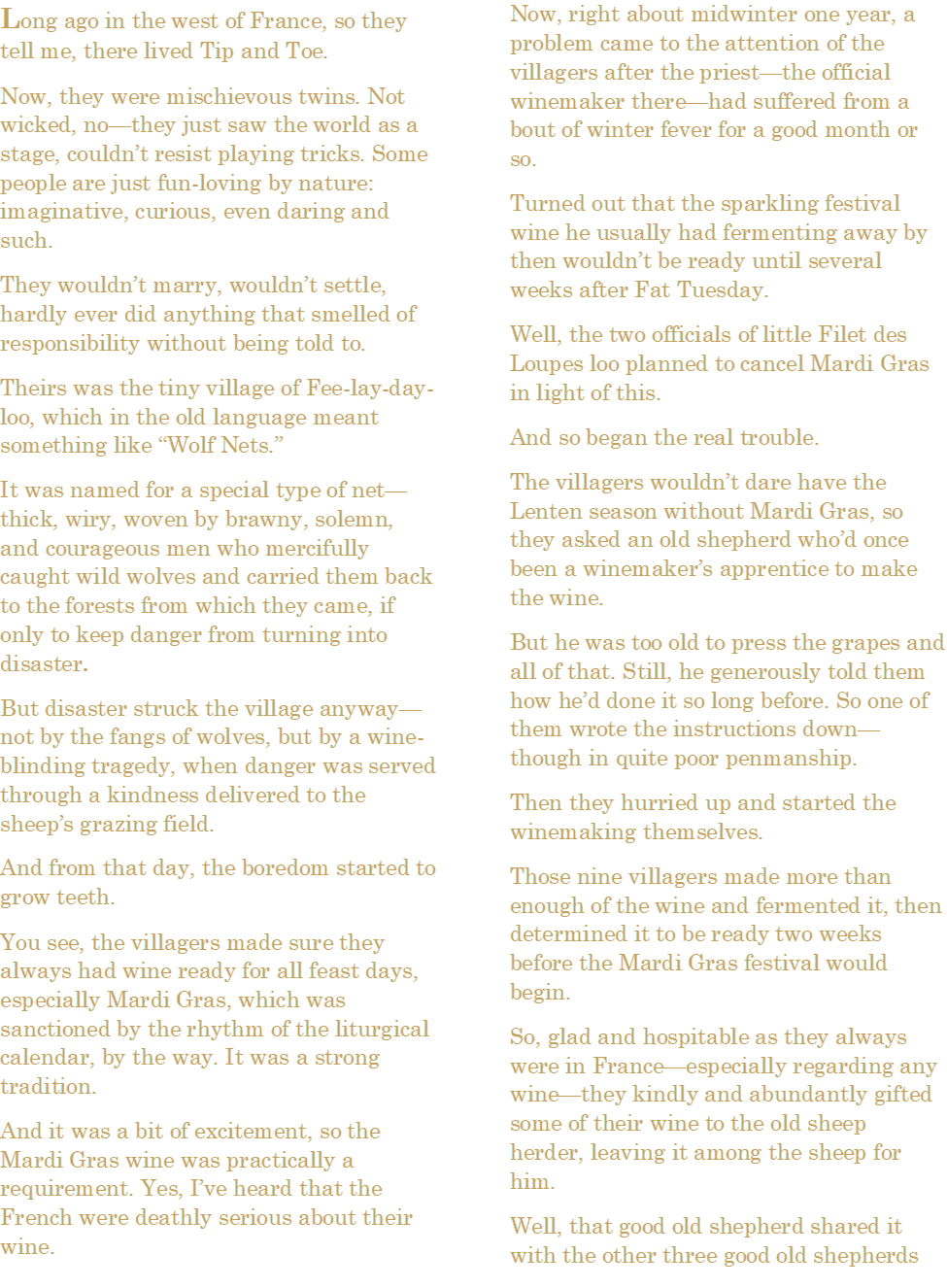

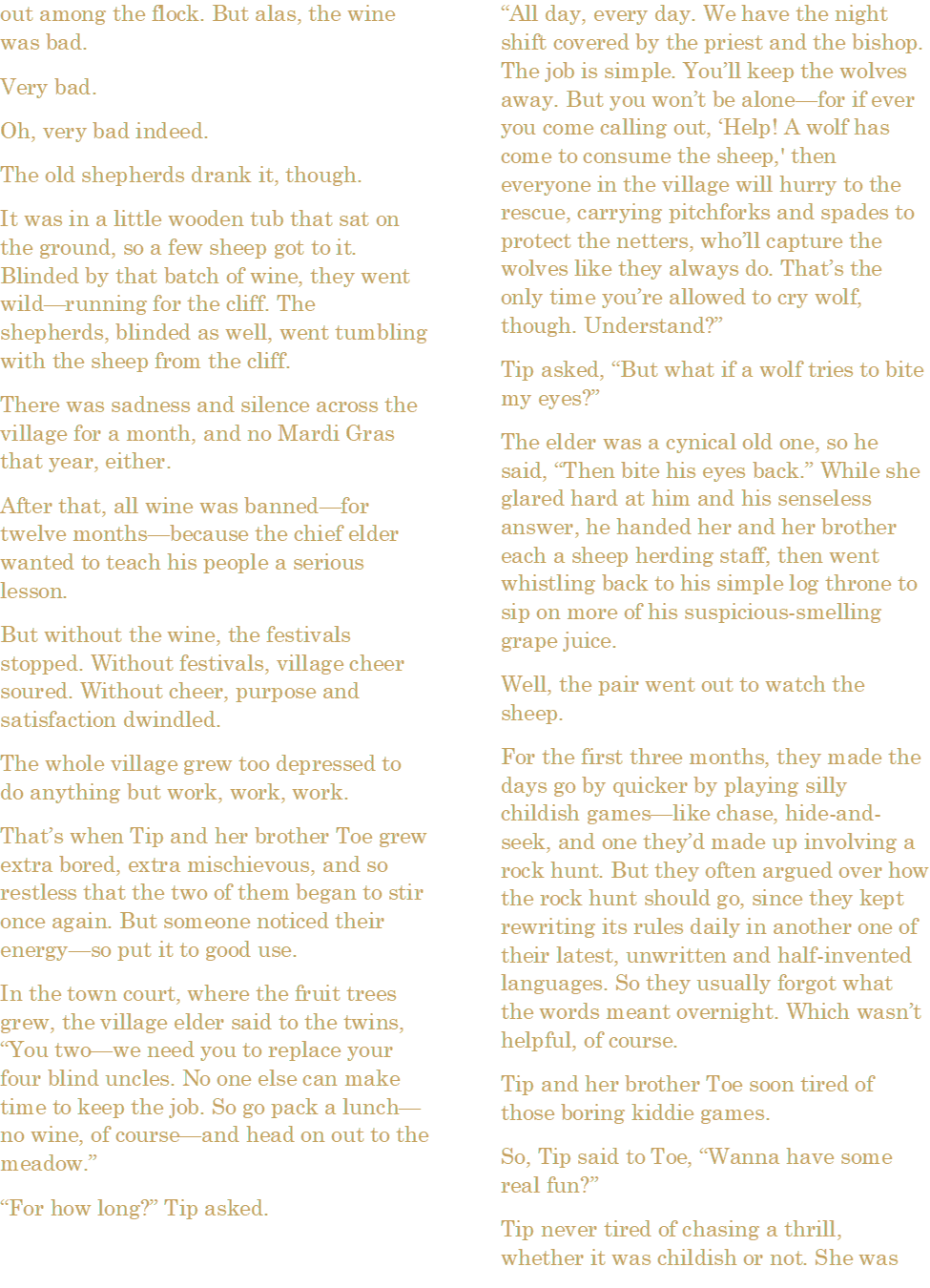

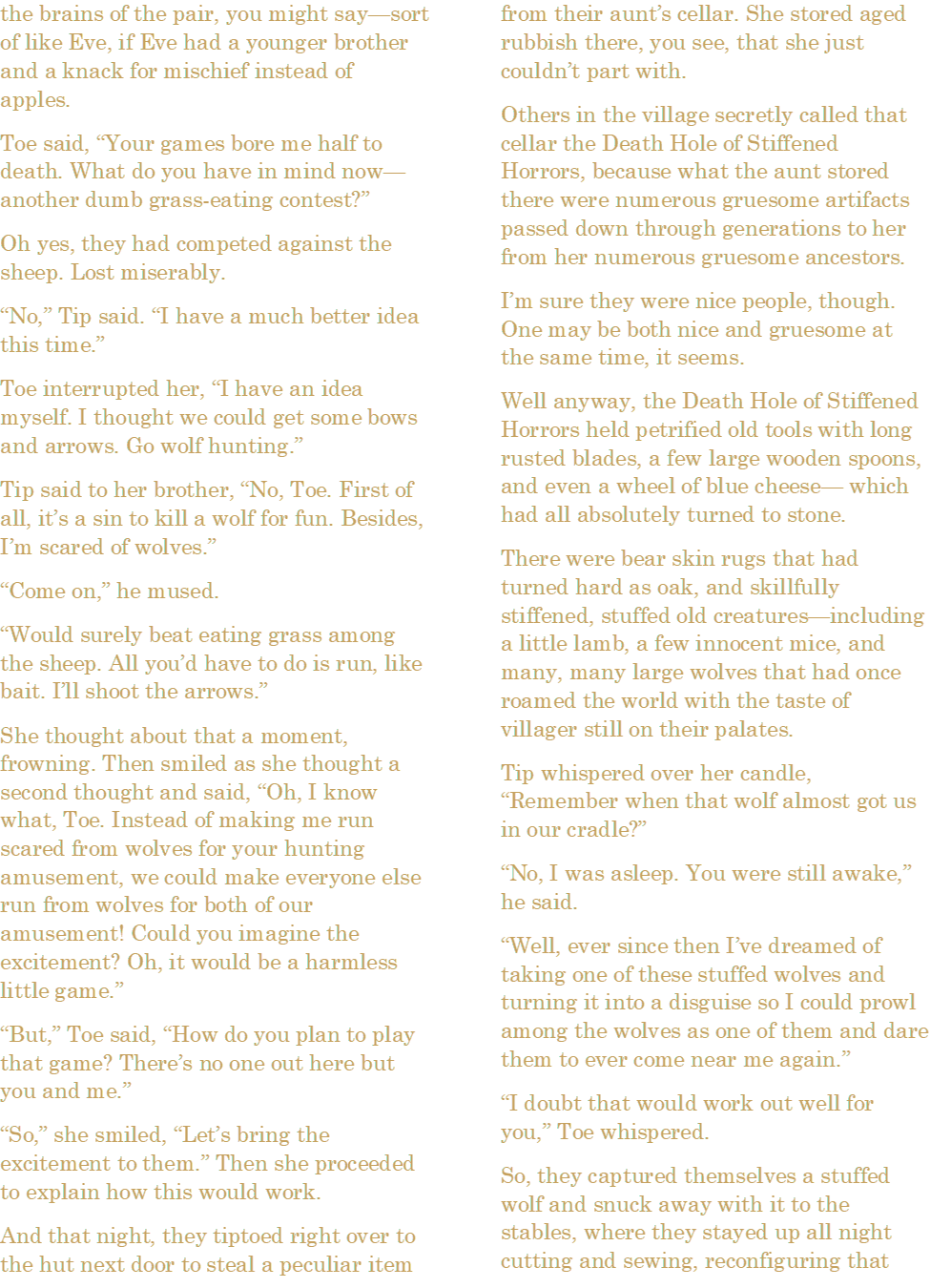

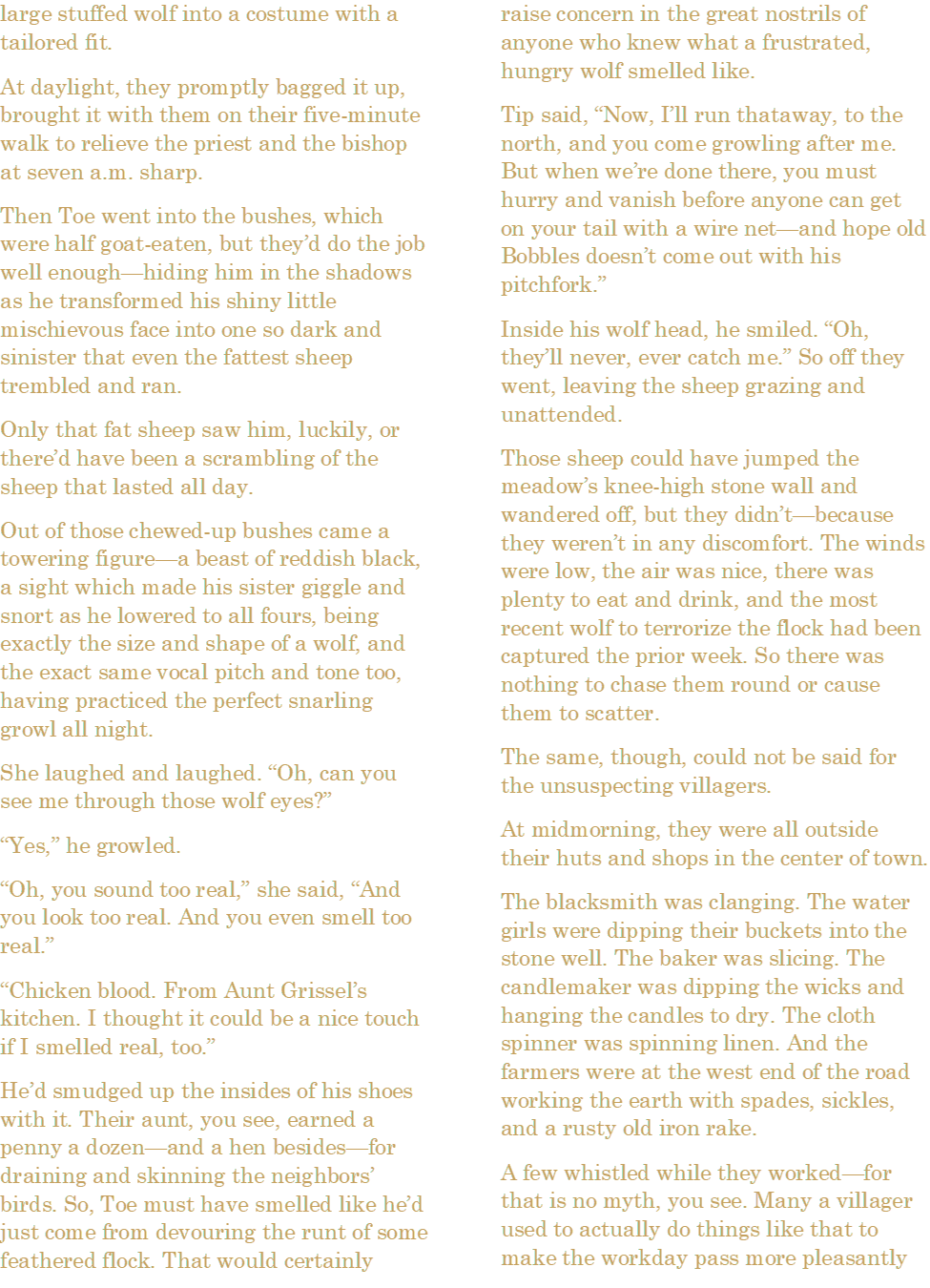

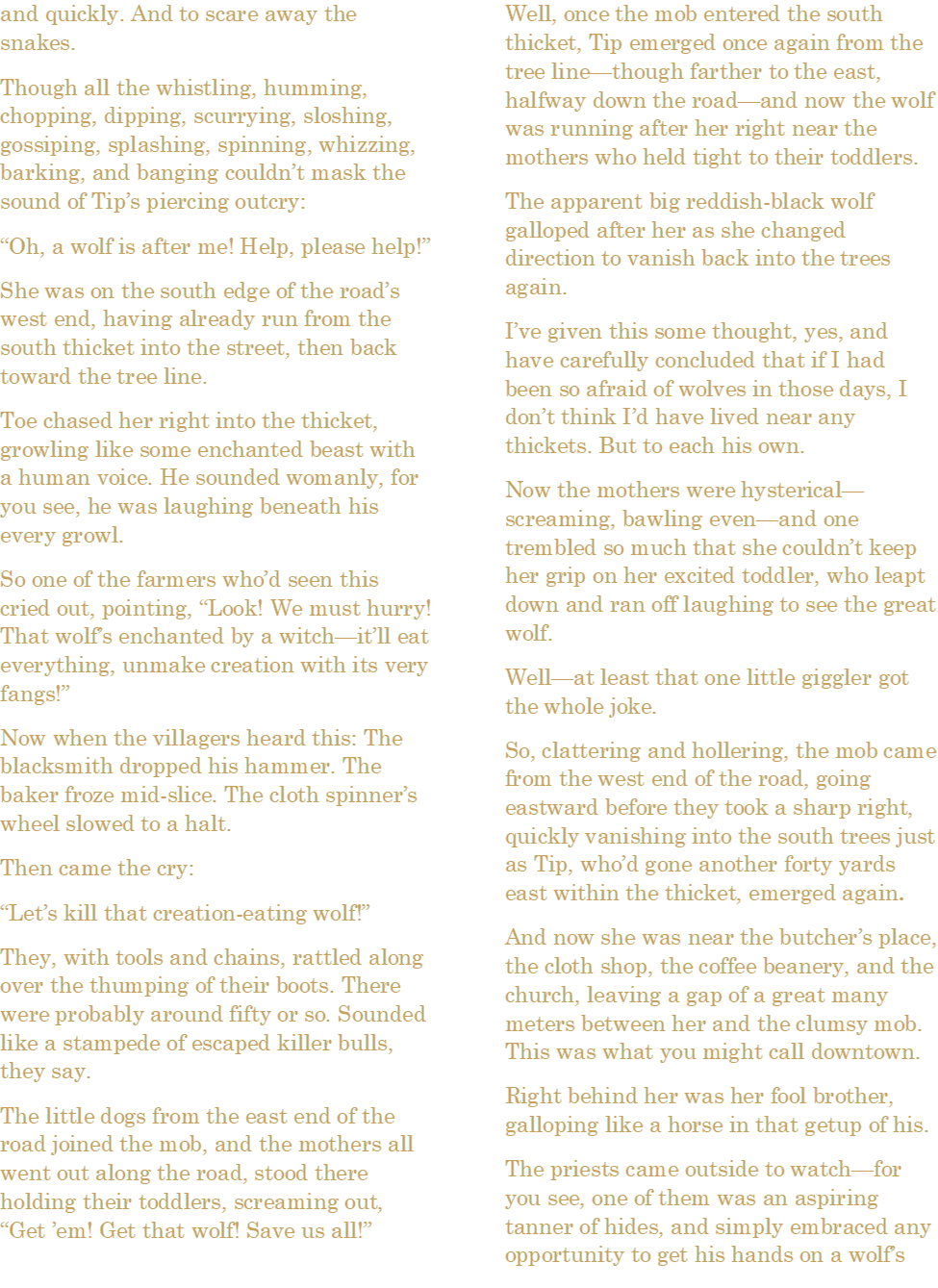

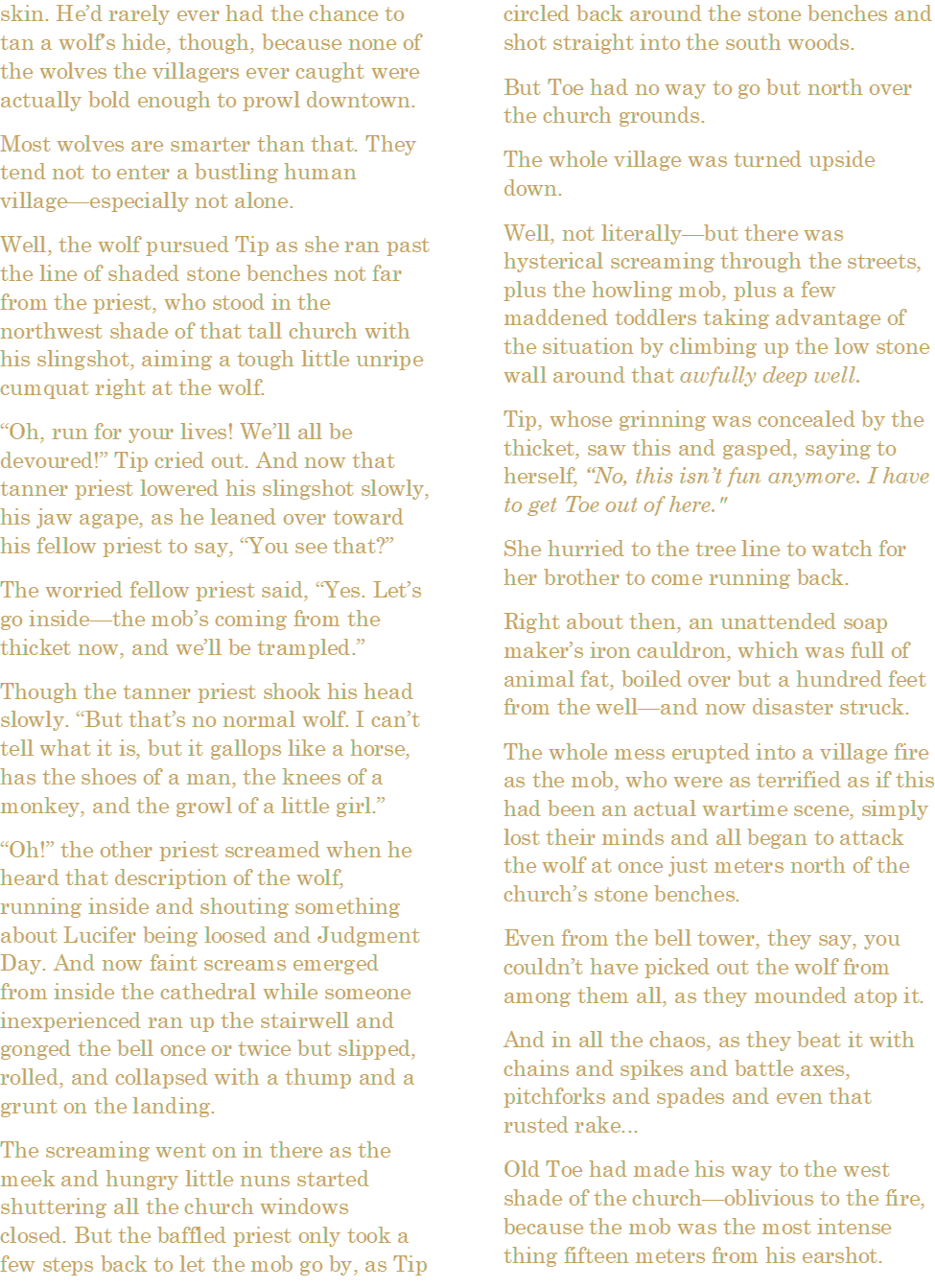

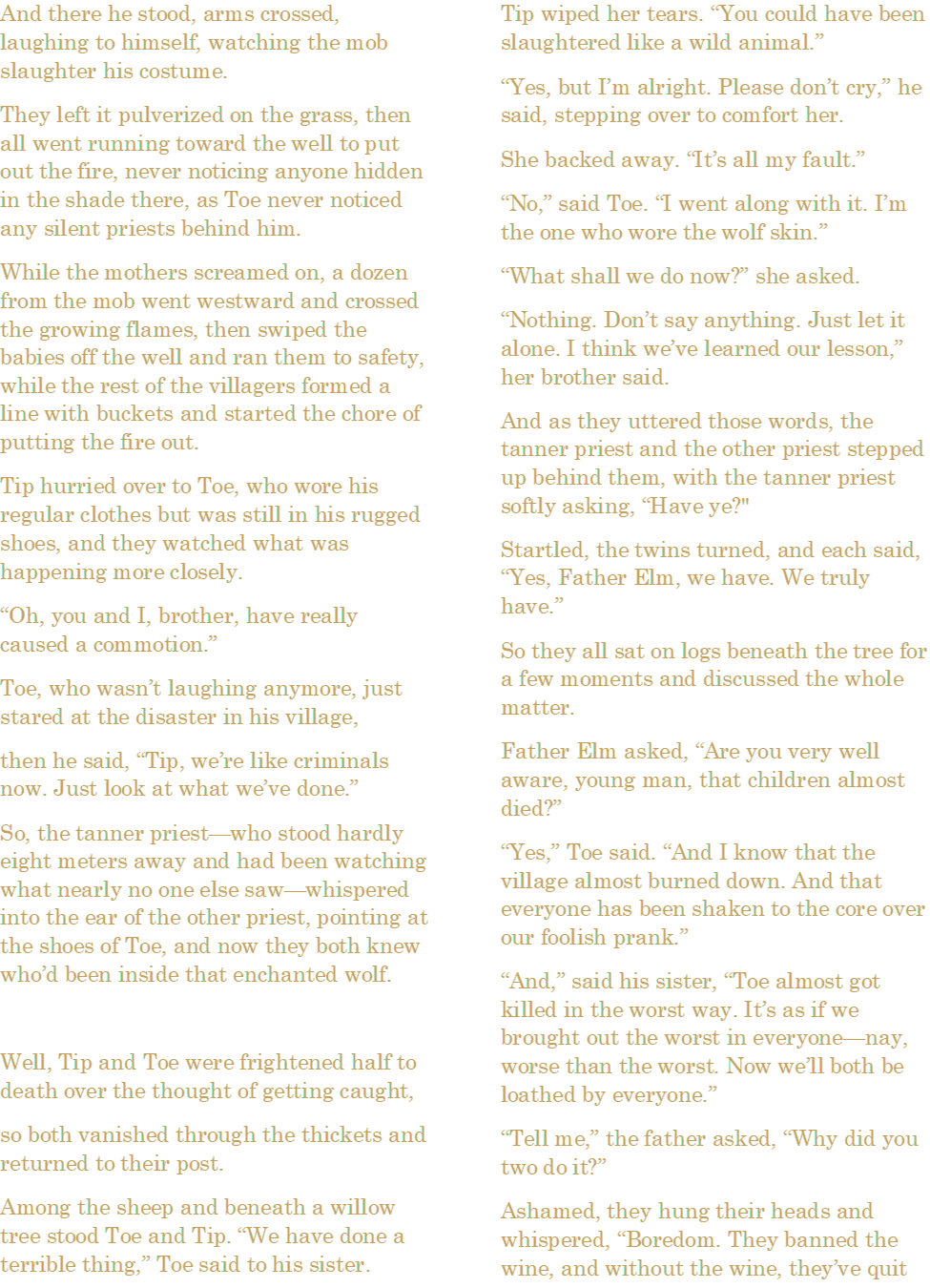

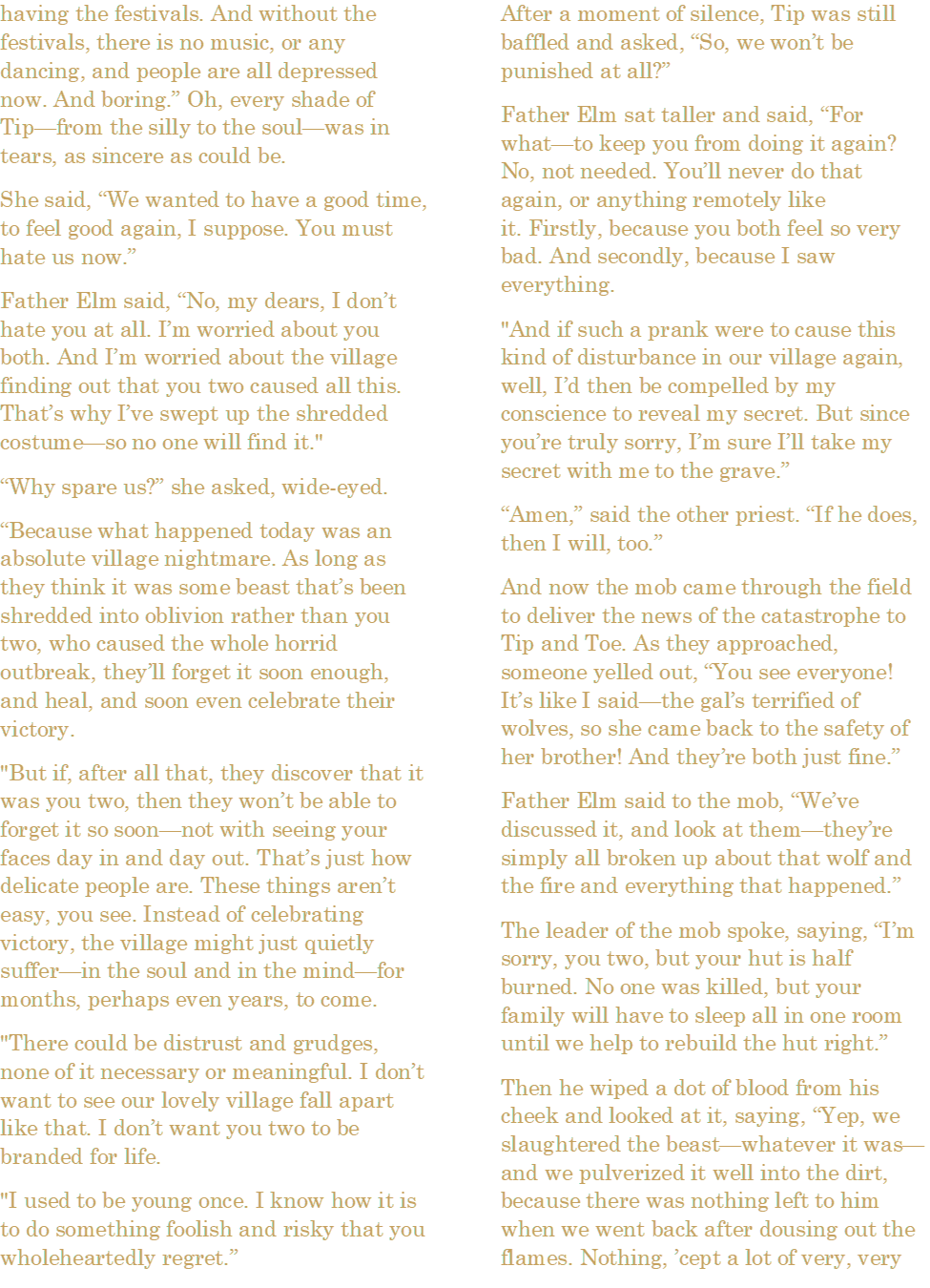

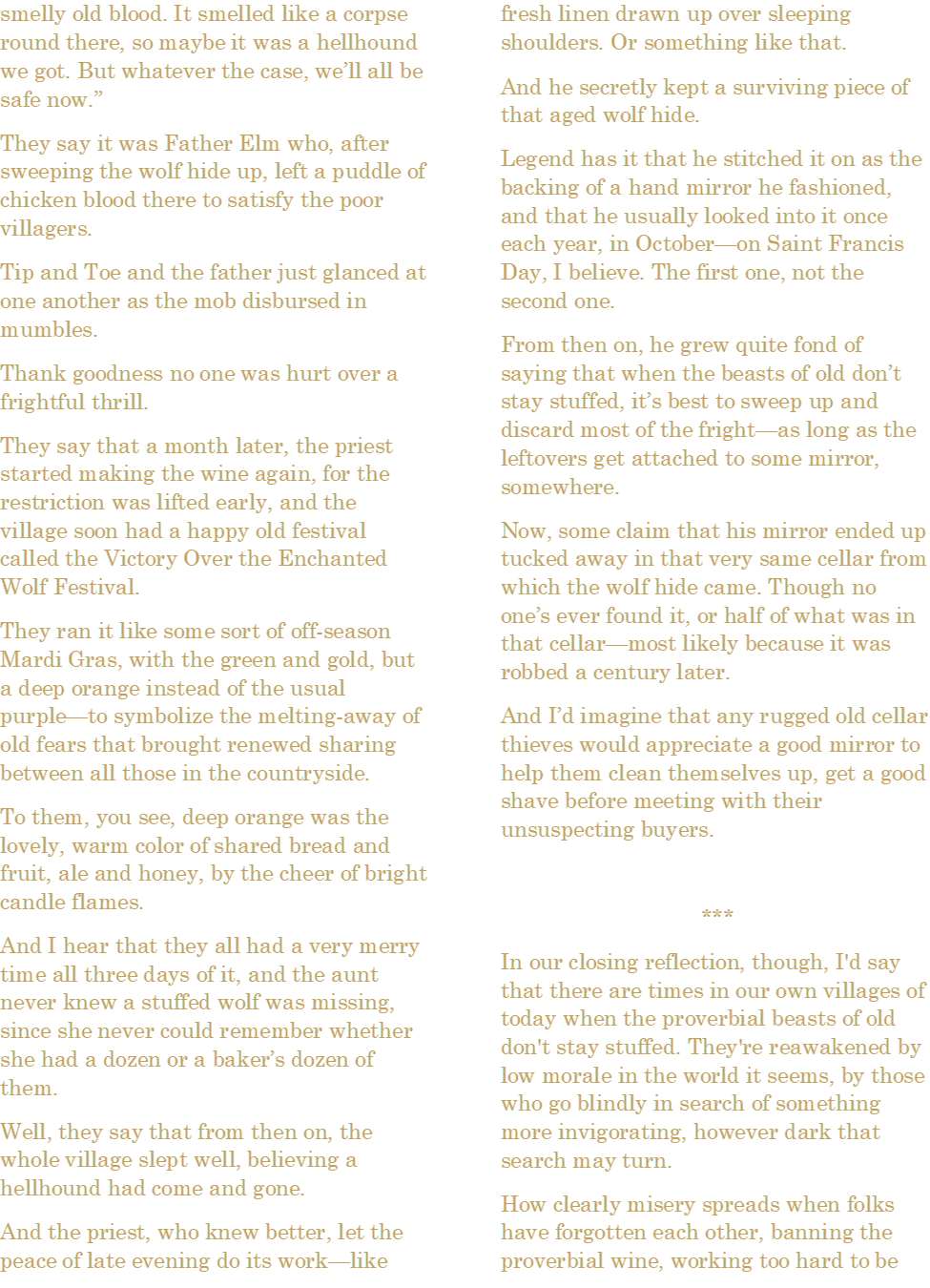

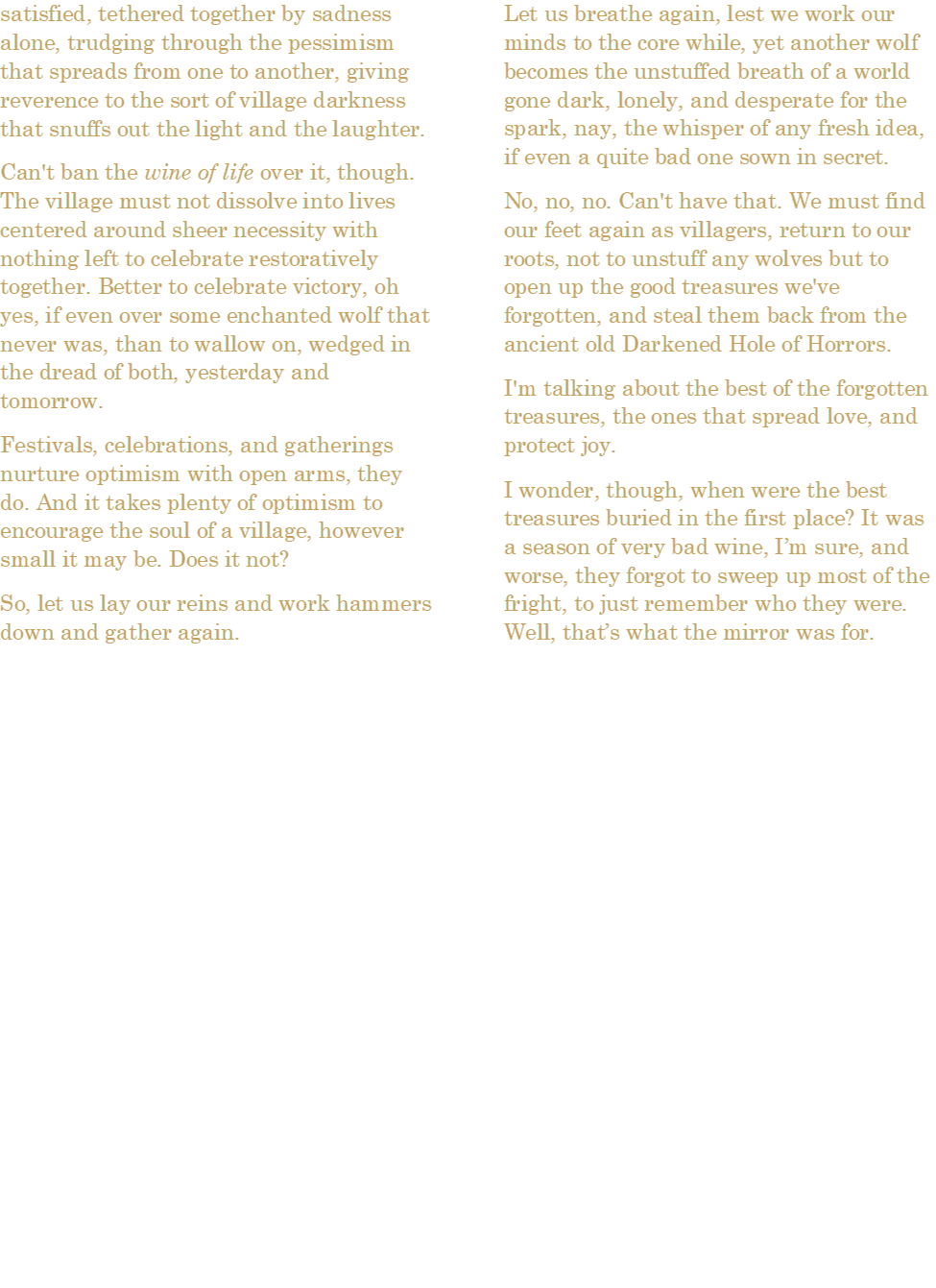



As the Record Turns
Simple Audio Format
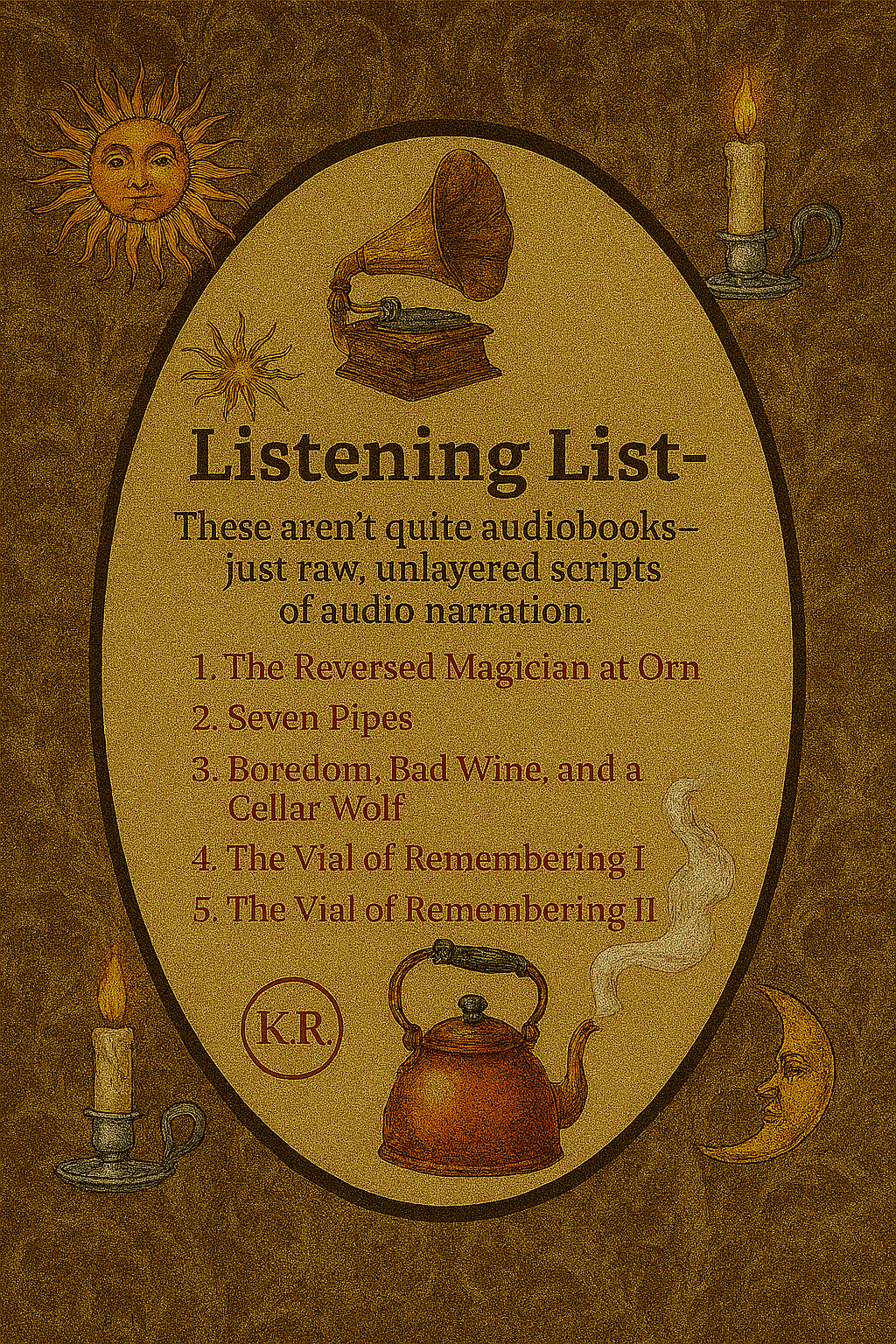
Listen
Posting a New Tale from the List Daily
Visual Stories
K. Rye's Tales in Visual Form You Tube Channel Folkloricflickers Link: https://youtu.be/d7hyGUJa360
Tarnished Kettle Tales Playlist on @folkloricflickers
Whimsy with Substance in Village Motifs
These videos are full of vintage-style, painterly visuals, subtle scene movements, occasional sound effects, collage textures, and background music to set the tone. The visual palette leans timeless and familiar—sometimes whimsical, sometimes a pinch absurdist—but always crafted with care. These are the kinds of stories that reveal new layers each time you watch.
And when two or more watch together, well... the symbolism reaches near-biblical proportions.
What?
I’m kidding.
Let’s get to the titles:
1. The Reversed Magician at Orn
Based on an 1883 tale by Frank Stockton.
A nosey magician, having noticed a peculiar old man, goes to his hut one day to start a bizarre conversation. After the conversation ends, the old man is compelled to go in search of his true identity. But had he really ever lost it to begin with? This tale follows the old man through a quietly strange journey revealing true essence.
2. Seven Pipes
Based on an 1885 tale by—again—Frank Stockton.
An old herder never moves from his rock while he herds the cattle home by playing his pan flute. One day a pair of villagers slips bad news to him. Devastated he sets out that night to right the wrong; the unfair generosity bestowed upon him. He meets a magical spirit along the way, who takes favor in him and helps him to get his moxie back. This tale has a bit of whimsical realism, told in an organic voice that adds a quaint opinion here or there.
3. Boredom, Bad Wine, and a Cellar Wolf
Loosely inspired by The Boy Who Cried Wolf.
Twin villagers face the decline of their village’s morale after a string of misfortunes and the banning of Mardi Gras. What they plot—and carry out—turns into a disaster. With dry wit, a touch of absurd humor, and a bit of suspense, this tale offers a laugh followed by a heartfelt thought or two.
Watch it @folkloricflickers
Stay tuned—more tales are quietly simmering. The channel is ad-free, with no notification bells or subscription requests. Though I’d never frown at a like or a subscription, especially if the tales genuinely delight you. Kind, thoughtful, and honest feedback is always appreciated.
Narrators
You’ll notice two mature British narrators throughout the playlist. One, more polished in tone, goes by Hal. The other has a hint of broken charm—let’s call him Wilf. A female narrator is on the way: her voice will be gently civil, wry, and compassionate, with a touch of breezy sarcasm.
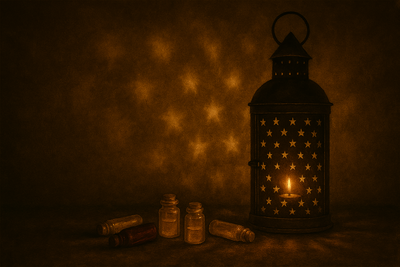
The YouTube channel, @folkloricflickers, is where these tales first flicker to life—moving images shaped with painterly care. Each video is a visual version of the stories I share here for quiet reading and listening.
Below, you’ll find the growing playlist: Tarnished Kettle Tales. 👉 Watch on YouTube
These are folkloric narratives for grown-ups—layered, emotionally stylized, and inspired by antiquated myths and classic authors. Each tale carries a twist that resonates with the longings of our current generations.
From the heartfelt to the gently humorous, these scenes build colorful mini-movies from humanity’s forgotten concerns—those tender truths still echoing beneath our modern noise. Many of these tales reflect the quiet mercy Kindred Rye defends: a mercy for the weary, the innocent at heart, the overlooked, and the sensitive imperfects.
Kindred Rye offers not escape, but return—to the parts of us the world forgot to love.
Storyvials is my offering to the grown-up soul: a place for tales shaped by ancestral echoes, spiritual inquiry, and the gentle restoration of identity.
Each story is a small vessel—painted, collaged, or whispered—rooted in humble lore and stirred by modern resonance. I work in digital painterly aesthetics that resemble oil, watercolor, paper puppetry, and subtle animation to evoke intimacy and emotional safety. My narrators speak with broken charm and quiet sincerity, inviting you into a parlor of symbols, rituals, and soul-weather.
I believe storytelling can be a form of mercy. That symbols can heal. That even in a noisy world, we can remember who we were before the forgetting.
My hope is to help restore emotional literacy and ancestral hospitality through art, and especially, story, and to dismiss the ego quietly through simpler, though not unnuanced, language.
My original village tales collection is still growing, though you may see my videos on my channel, folkloricflickers, where my handle is Kindred Rye.

She welcomes kindred spirits and thoughtful correspondence.
Thank You for Visiting
Read IV
Posting here by December 2025

The Vial of Remembering Part One